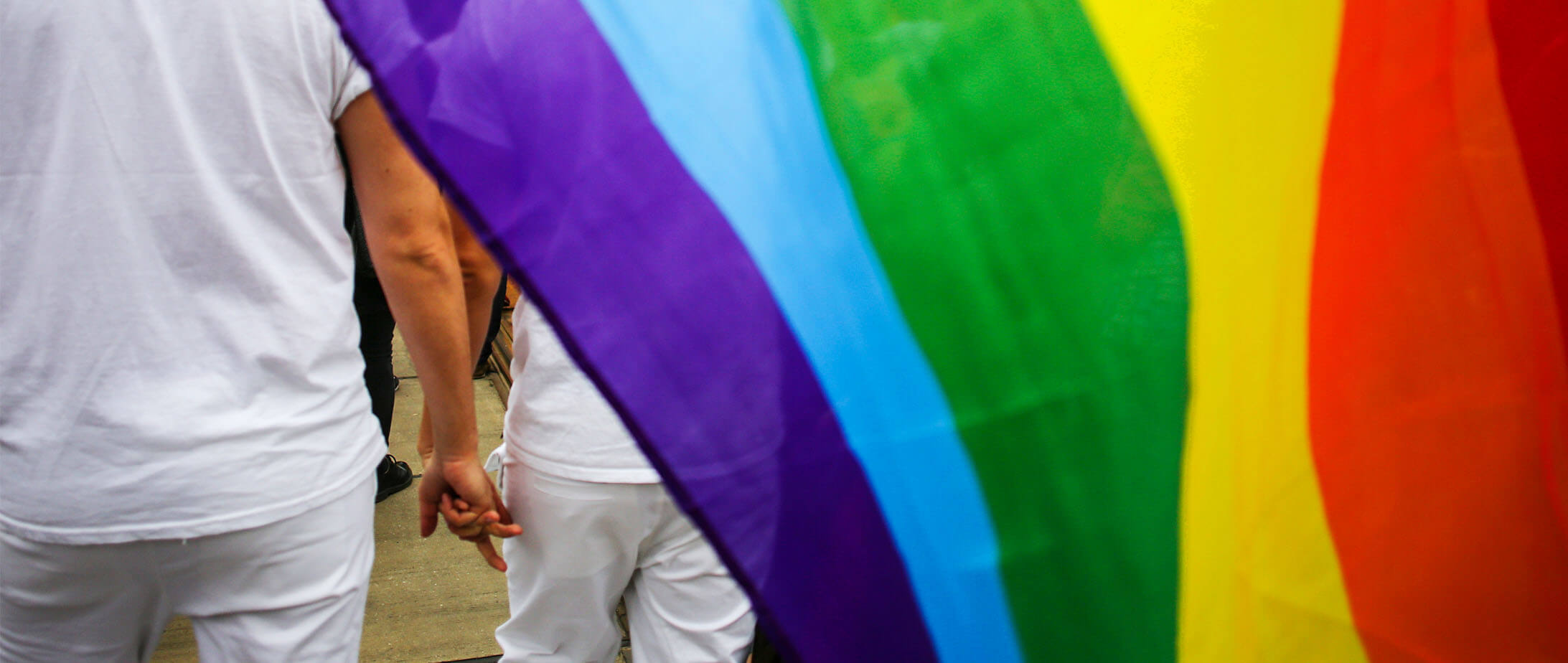The Polish parliamentary elections in 2011 were a milestone for the rights of LGBTQ people in the country. Anna Grodzka became the first openly transgender representative to be elected to the parliament. Robert Biedroń, the founder of Poland’s largest LGBTQ organization Campaign Against Homophobia (Kampania Przeciw Homofobii), was also elected, becoming the first openly gay representative. That year, it was looking like things might finally be opening up in Poland, but things have dramatically changed since then.
In the 2015 election, the right-wing nationalist party Law and Justice (Prawo i Sprawiedliwość) won, maintaining close contacts with the Catholic Church and nationalists. This election has to be put in a broader European context of the expanding populist movements. Other examples include the election of Viktor Orban in Hungary, Brexit, support for Marine Le Pen in France, and the growing nationalist movement in Sweden. It is also a continuation of trends that we’ve always had at home. In some ways, the already conservative Polish society has been radicalized even more. The noticeably increasing scale of hate crimes towards various groups, including LGBTQ people, is one of the most important challenges facing our movement. Until now, no regulations regarding civil partnerships or same-sex marriages have been introduced in Poland. But that also means we have no rights to risk – nothing can be taken away when you have nothing.
Personally, I’ve experienced a number of situations in which I almost became the victim of violence. While working for Campaign Against Homophobia, I experienced attacks on our office twice. A group of three aggressive men tried to break into the office, shouting vulgar words. Also, I’ve faced verbal abuse on the street and in the park numerous times when walking openly with my French partner. To be honest, I have never encountered so much aggression in my life as in the past two years. We are both close to leaving Poland, just as many other people have done.
A recent study conducted by Campaign Against Homophobia shows that gays and transgender people are groups that are the most exposed to violence. Attacks against LGBTQ victims are not condemned by representatives of state institutions. But LGBTQ people are not the only group that has become the target of increased attacks. Migrants and people of color have become increasingly cautious as well.
Paradoxically, this environment has created new opportunities. For a long time, gay and bisexual men have developed safe social networks, meeting places, clubs, and friendly services. Unfortunately, this has not always been true for queer women and trans people. Back then, these two separate worlds existed side by side, rarely crossing over. My impression is that even the lack of partnerships did not bother them so much. But something changed after the 2015 elections. The political situation in which sexual, national, and ethnic minorities are victimized and accused of every evil in the world has encouraged the dormant LGBTQ movement to act.
I use this word, movement, in the sense of a broad and active community, not just a small set of busy activists. One example is the Equality Parade that takes place every year in Warsaw, which hit record numbers of attendants in 2016. How many times have you heard that pride events do more harm than good in countries where being LGBTQ is frowned upon? Fortunately, in Poland, I hear it less and less frequently. People also realize that support for LGBTQ organizations can bring real change for them. NGOs are reporting a rapidly growing interest in financial support.
Another very important change is taking place in terms of alliances made with other movements. Black protests (Czarny protest) overwhelmed Poland in October 2016, in response to planned changes in abortion law. The Democracy Defense Committee (KOD) was born just after the 2015 elections. Both are examples of solidarity among groups that have sometimes worked separately – men and women, gay and straight, old and young. The power of such unified actions is much greater and more difficult for the authorities to suppress.
From the Polish perspective, the conservative movements happening in other countries now are especially sad because I know firsthand what these political decisions can lead to. Poland has rarely been a “role model” for other countries, but this time it should be a warning bell and an example of how to build solidarity among discriminated groups.
Don't forget to share:
Help make sure LGBTQ+ stories are being told...
We can't rely on mainstream media to tell our stories. That's why we don't lock our articles behind a paywall. Will you support our mission with a contribution today?
Cancel anytime · Proudly LGBTQ+ owned and operated
Read More in Impact
The Latest on INTO
Subscribe to get a twice-weekly dose of queer news, updates, and insights from the INTO team.
in Your Inbox













